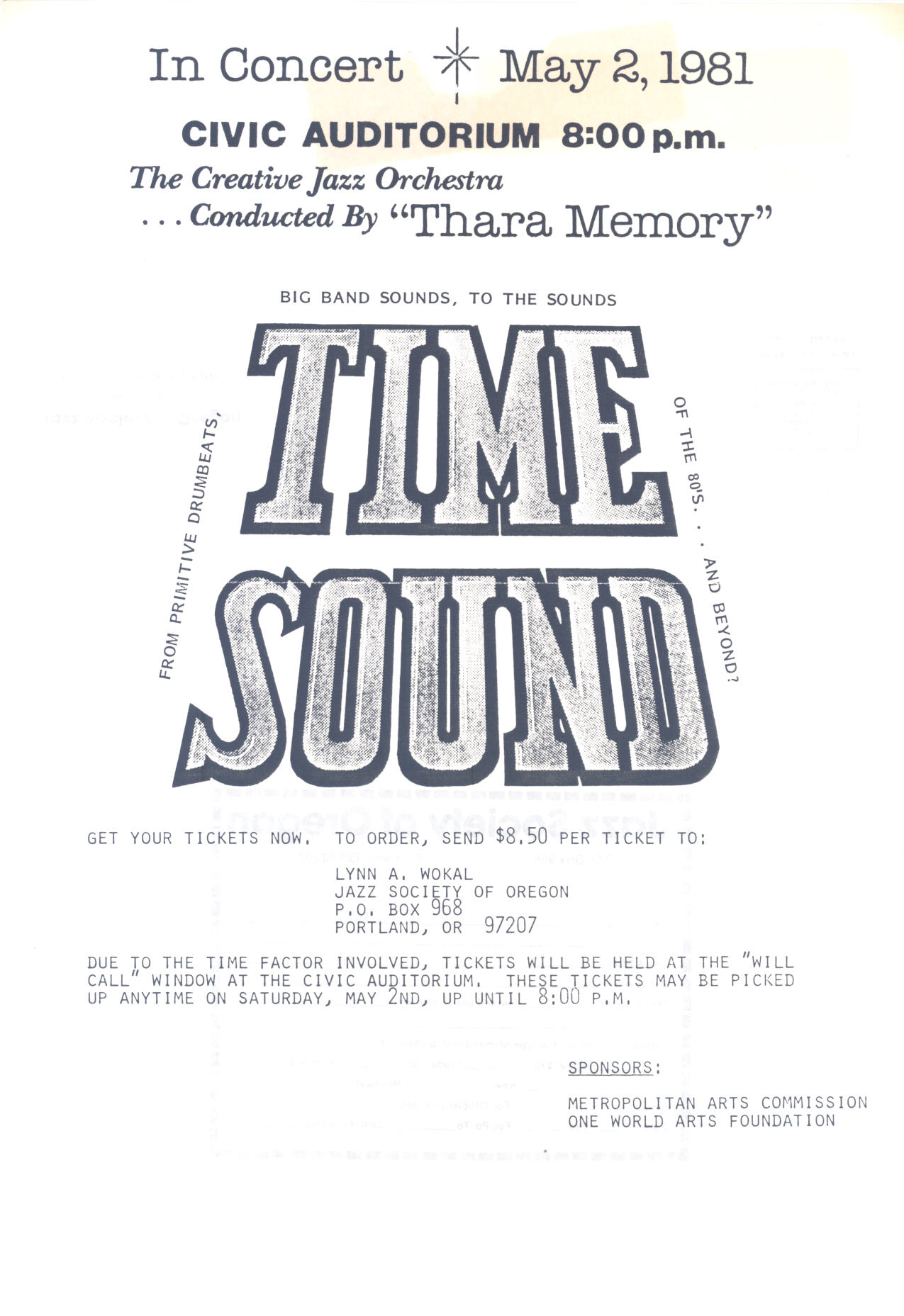It is unusual for musicians to achieve the respect of peers and professional success in more than one field. Pianist, music director, educator, and composer Janice Scroggins did. Between her arrival in Portland in 1979 and her death at age fifty-eight in 2014, she played a central role in the blues, gospel, and jazz communities. Such a wide scope was possible for the Oklahoma native due to her command of the common elements underlying those styles. As Esperanza Spalding, 2012 Grammy Artist of the Year and former Scroggins student, said: “She unifies completely the sounds of gospel, blues and jazz—our American roots music.” Scroggins wrote on the CD cover for Theresa Demarest’s recording Good Company, on which she played piano: “I come from a musical family, raised with Gospel, Classical, Movie Themes, Blues….I've had the good fortune of playing any type of music I want to with great artists.”
Born in Idabel, Oklahoma, Scroggins was trained by her mother and grandmother, church pianists from whom she acquired her stride-oriented approach, with its strong bass lines in the left hand—a style that set her apart from most blues and jazz pianists in the Portland area for most of her career. She moved to Oakland, California, as a teenager, where she attended high school and community college before moving to Portland. In the 1980s, she worked with the soul band The Esquires and with the Norman Sylvester Blues Band, the Lloyd Jones Struggle, Thara Memory’s SuperBand, and Grammy-nominated R&B star Curtis Salgado. In 1994, she began playing with West African drummer Obo Addy and his Afro-pop band Kukrudu, traveling in the United States and Africa.
Scroggins taught piano in the Portland Public Schools and at Portland Community College and was an important musician in many church performances, serving as music director of the Portland Interfaith Gospel Choir. For twenty-nine years, she led the band for Portland-based World Arts Foundation’s annual tribute to Dr. Martin Luther King, Jr. She performed solo at the Portland Jazz Festival in 2014 and at the Waterfront Blues Festival nearly every year between 1987 and 2013. Scroggins was inducted into the Cascade Blues Association Hall of Fame in 1992 and the Oregon Music Hall of Fame in 2013.
Scroggins contributed to a variety of critically acclaimed albums, as well as her own solo discs—Janice Scroggins Plays Scott Joplin (1987) and Piano Love (2014)—including Spalding’s Grammy-winning Radio Music Society, Grammy-winner Thara Memory’s Chronicle, Eddie Harris’s Vexatious Progressions, and her duo recording with Portland vocalist Linda Hornbuckle, Sista (2004). Three of her compositions appeared on Portland drummer Akbar DePriest’s album, Central Avenue Roots (1996).
Beginning in 2004, Scroggins worked in a jazz duo with New Orleans native Reggie Houston. She also performed in symphony halls in Portland and Seattle with the “Ten Grands” annual benefit series for music education. Memory, who began working with Scroggins in the 1980s, called her "our George Gershwin" and said she "deserves to work any night of the week she wants on Broadway." In addition to her musical skill, colleagues such as Reggie Houston observed, her personal qualities played an important part in her central position in the Portland music community. “Her greatness comes through her music," Houston said, "but her greatness is not her music. It's her warmth, her generosity, her compassion."
-
![]()
Janice Scroggins Plays Scott Joplin album cover, 1987.
Courtesy Flying Heart Records
Related Entries
-
![Esperanza Spalding (1984-)]()
Esperanza Spalding (1984-)
Esperanza Spalding’s fierce talent in double bass and vocal work earned…
-
![Obo Addy (1936-2012)]()
Obo Addy (1936-2012)
Obo Addy, a celebrated Ghanian drummer and dancer, lived in Portland fo…
-
![Thara John Memory (1948-2017)]()
Thara John Memory (1948-2017)
Thara John Memory was a trumpet player, composer, educator, and activis…
Map This on the Oregon History WayFinder
The Oregon History Wayfinder is an interactive map that identifies significant places, people, and events in Oregon history.




